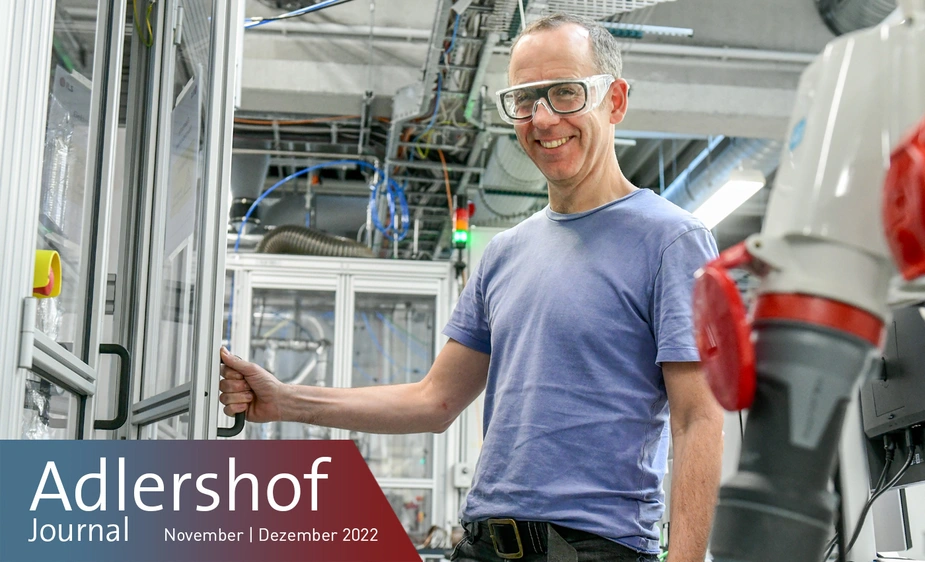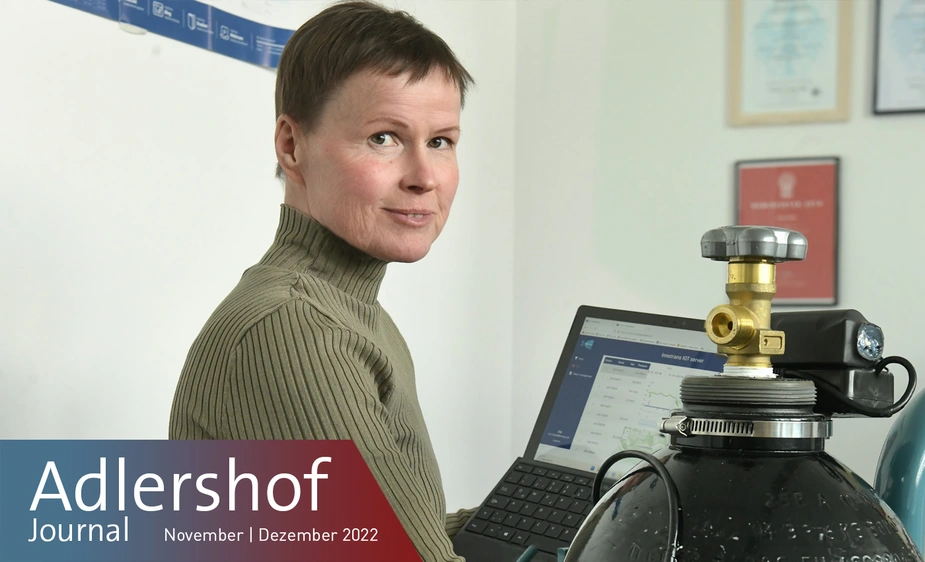Who dares wins
How innovative companies think about error and risk-taking culture
A common lament is that the error and risk-taking culture in this country is not particularly developed. As these examples will show, they cannot be talking about the innovative companies from Adlershof.
A good idea, start-up spirit, and a rosy future ahead. 5micron GmbH entered the Technology Park in January 2015, where it develops optical measurement systems for high-precision topographic analyses of surfaces and layers. This can mean monitoring and measuring aircraft wings during flight, for example. “We come from an aviation background,” says Ute Franke, co-managing director of 5micron. “We launched our companies with two commissions from Airbus and Rolls Royce.” It was planned to kick off another large project with a Munich-based engine manufacturer in March 2021. Then the pandemic happened. First, the meetings were postponed, then the project was cancelled altogether. “It quickly became clear to us that developing for aviation was not a safe prospect for the time being.”
It looked like the history of 5micron might turn out to be very short indeed. But Ute Franke and Jean Blondeau, the two founders, analysed the situation, broadened their horizons, and turned the wheel: from aviation to healthcare. Their technology based on optical sensor technology, sensor fusion, and image processing was very interesting for that industry as well. No sooner said than done. “We started developing a 24/7 contactless care assistance system called multiZEN Care,” says Franke. The company also began targeting the gas industry by developing measurement systems. Diversification at a rapid pace.
This audacity did not only ensure the start-up’s continued existence but also created a dollop of purpose, to put it in modern terms, among the staff: “In 2020 and 2021, one effect was that the entire team started identifying with an issue that is highly relevant to our society, the shortage of caregivers,” says Franke. “In that difficult time, it was an important motivation to sense that we as a team can develop innovative projects and products for new fields of application using our experience and knowledge.” Measurement systems for the gas industry, too, have become an important pillar of the business.
Changes at this level required courage. In many ways. “It took courage to openly address this existential situation with our team,” says Franke admittingly. “Only by receiving everyone's understanding and trust were we, the management, motivated enough to take this demanding path.” Because if the employees don’t come along, nothing works. The CEO duo did not have to overcome any resistance.
A great foundation for a culture of risk-taking culture, says Franke: “On the inside, a sense of solidarity, mutual trust, and respect are very important for the team, which we were lucky to have. Then, you take risks and win together.” She was more worried about her surroundings if taking a risk had failed: How will clients, partners, business relationships, and families react? After weighing the chances and risks, Franke’s motto is: Who dares wins.
If that sentence was uttered in reference to Anton Nagy, head of ILS Integrated Lab Solutions GmbH, it were the following: If you don't make mistakes, you've already lost. You’ve lost innovation potential. “If you are always afraid of making mistakes, you won’t dare to try anything new. There is no innovation without mistakes,” says Nagy. His company designs fully automated testing facilities for catalyst research on a laboratory and pilot scale, including for carmakers, the chemical industry, and energy companies.
“Since every facility is unique, it is natural for mistakes to happen,” says Nagy. Typically, the facility is taken into operation at the client’s and optimised over months in Adlershof. By testing in the Adlershof-based laboratory, Nagy saves his clients this effort as well as his employees, who, at this point, had already been travelling all over the world for months. Ironing out errors by design, so to speak.
This is so inscribed into the company’s DNA that all employees publish their minor and major mishaps on the intranet. Every month, these “fuckups” are discussed in front of the entire team so everybody can learn from them. “We are proud to talk about our mistakes,” says Nagy. “To me, it is very important that nobody hides them, is ashamed of them, or fears even the slightest disadvantage because of them.”
Internally, it doesn’t take much courage to explain what went wrong. This can be different with clients. For this reason, especially younger employees are assigned more senior ones to lead the ticklish conversation – which is sometimes practised in advance. He applies the method: Say it how it is. Unsparingly. “Most clients appreciate this”, says Nagy. “Openness leads to further jobs.” It’s easy to see: Failure can be an opportunity.
Chris Löwer for Adlershof Journal

